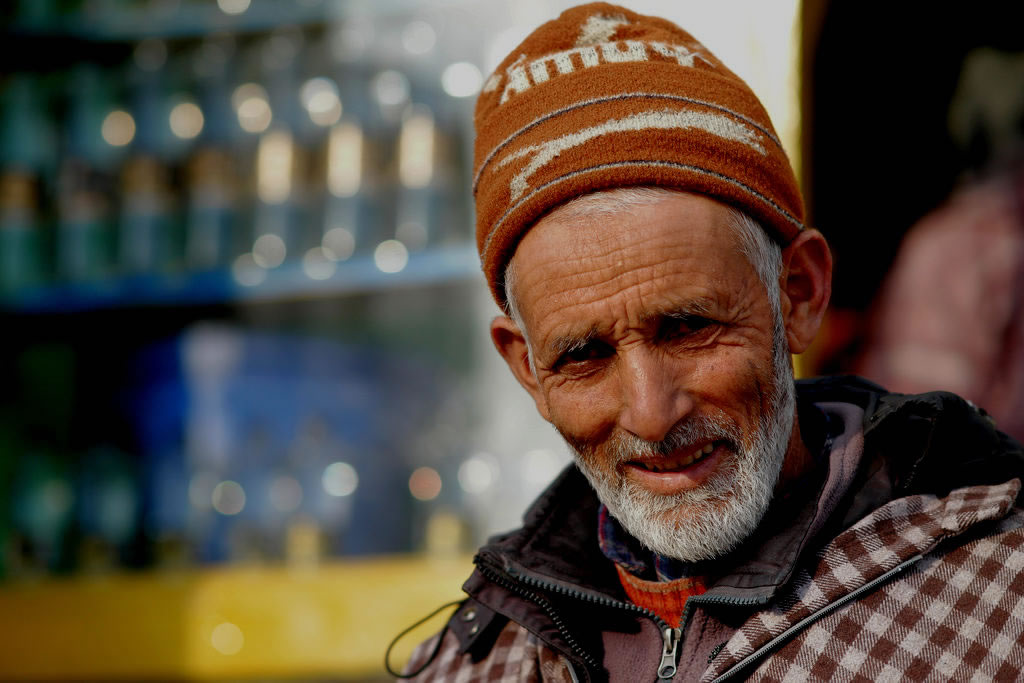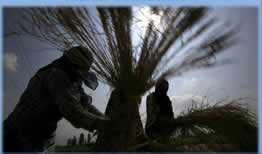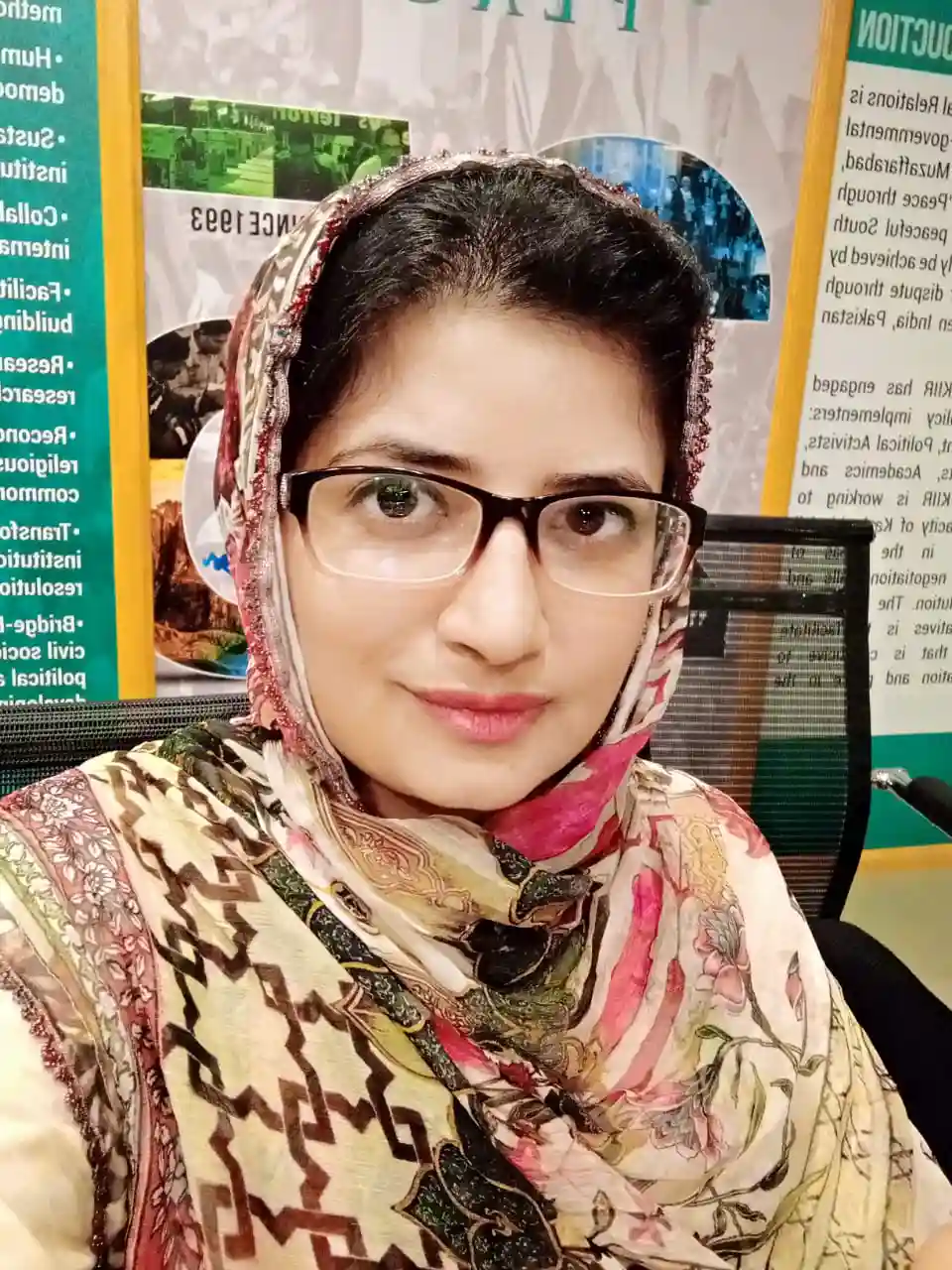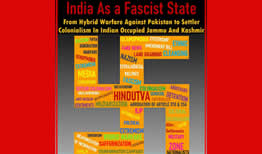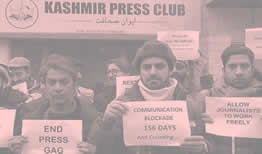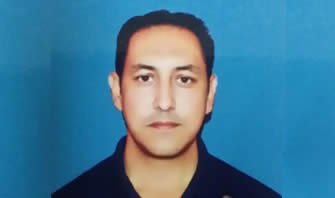Censoring Memory Kashmir’s August 2025 Book Ban
Censoring Memory Kashmir’s August 2025 Book Ban
Executive Summary
The August 2025 book ban in Jammu & Kashmir did not appear overnight. It was born out of a political climate where controlling the narrative has become a central priority. In the months before the ban, criticism of the government’s Kashmir policy had been gaining ground, not just locally, but in international forums. Reports from international human rights bodies, UN experts and academic research were increasingly highlighting rights violations, demographic changes and cultural erasure.
Its timing reveals its deeper purpose. With the UN Human Rights Council’s September session on the horizon and G20 follow-up discussions still echoing in diplomatic circles, the government seemed intent on preventing these books from shaping public opinion. Silencing critical material before it could reach a wider audience was a calculated move. Domestically, 2025 has been marked by rising political tensions, economic dissatisfaction, farmers’ protests and growing unrest in India. Books that document Kashmir’s reality in detail threatened to connect these broader grievances with a critique of the state’s authoritarian direction. August’s timing also coincided with the sensitive anniversary of Article 370’s revocation, a period when Kashmir-related discourse typically intensifies.
The “why now” has two layers: internationally, to contain reputational damage before key forums; and domestically, to choke off independent scholarship during a politically charged period when public attention could rally around uncomfortable truths.
Overview of Aug 2025 Book Ban
In early August 2025, the Jammu and Kashmir administration, under the direct authority of Lieutenant Governor Manoj Sinha, implemented a sweeping ban on 25 books. This move was officially announced on August 5, 2025 and the subsequent enforcement actions, including raids on bookstores, occurred through August 6 across Srinagar and nearby towns. Manoj Sinha, the lieutenant governor of Jammu and Kashmir, was appointed by the Bharatiya Janata Party (BJP)-led government of Prime Minister Narendra Modi. The ban reflects the continued tightening of control over political and intellectual discourse in the region following the revocation of Jammu and Kashmir’s special constitutional status in August 2019 (OHCHR, 2022).
The ban was enacted under the authority of Section 98 of the Bhartiya Nagarik Suraksha Sanhita, 2023 (BNSS), a new legal provision empowering the government to forfeit publications deemed threatening to national integrity and public order. Sections 152, 196 and 197 of the Bhartiya Nyaya Sanhita, 2023 were invoked. These legal frameworks broadly criminalize dissemination of material seen as inciting secessionism or threatening India’s sovereignty (UN SR on Freedom of Expression, 2024). The notification ordered the forfeiture of all physical and digital copies of these works, banning their possession, sale, or distribution within Jammu & Kashmir. Those found in violation could face imprisonment and legal penalties. The enforcement was thorough: police raids targeted major bookstores, roadside vendors and even small shops across Srinagar and other localities, resulting in seizure of hundreds of copies.
This ban fits into a broader pattern of censorship and clampdowns on dissent since the abrogation of Article 370 in August 2019, when Jammu & Kashmir’s special status was revoked and it was placed under direct federal administration.
Why the Ban Happened Now?
The Aug 2025 book is not an isolated administrative decision, it is a calculated political act, timed with the sixth anniversary of Article 370’s dilution. The symbolism is deliberate: the state is not merely regulating speech but rewriting the narrative of Kashmir itself. By invoking sweeping legal provisions under
the BNSS without citing specific passages, the order avoids judicial scrutiny while projecting a message of zero tolerance for dissent. This is less about immediate threats to sovereignty and more about curating a singular, state-sanctioned history. In doing so, the government collapses the distinction between scholarship, opinion and sedition, turning political disagreement into a criminal offence. The choice of timing magnifies the political intent. August 5 has become a date of performative sovereignty for New Delhi and the ban serves as an annual reaffirmation of control over the Valley’s cultural and intellectual life. It weaponizes law nforcement against ideas, extending a regional censorshi order into a de facto national prohibition through supply-chain chilling effects. Major publishers and online platforms are pressured into silent compliance, erasing contested histories from public reach without a formal nationwide ban.
This is not only an attack on Kashmiri self-expression but also a test of India’s constitutional resilience, probing how far state power can stretch in suppressing ideas under the guise of national unity. The August book ban reveals a shift from managing security threats to managing memory itself
Named Authors & Banned Works
The list of banned books includes works by prominent authors, scholars, journalists and activists from India, Kashmir and abroad. These publications cover a range of topics from Kashmir’s history and politics to human rights documentation and calls for self-determination. Among the most notable .(2025 ,banned titles are: (Al Jazeera These works have been widely acclaimed internationally and regionally, providing comprehensive and documented perspectives on Kashmir’s history and current realities.
Government Justification
The Jammu & Kashmir Home Department justified the ban on these books by citing a review process supported by intelligence agencies. According to officials, the banned literature represents a “systematic dissemination” of false narratives disguised as historical or political analysis. The government claims these works promote secessionist sentiments and contribute to the radicalization of young people in the region (Government of Jammu & Kashmir, 2025). Specifically, authorities allege that the books promote a culture of grievance and victimhood among Kashmiri youth, glorify terrorism and violence against the Indian state and vilify occupation forces, thereby undermining their role in maintaining law and order.
The government argues that these publications encourage religious radicalization and alienate Kashmiris from mainstream Indian society. They contend that the circulation of such material negatively affects the mindset of young people, creating an environment prone to violence and militancy. This rationale fits within the wider policy framework implemented after 2019, characterized by increased surveillance, suppression of dissent and stringent counterinsurgency operations in Jammu & Kashmir.
Reactions from Authors & Experts
The ban sparked widespread criticism from authors, academics, human rights defenders and civil society, all highlighting its deeper implications. Hafsa Kanjwal described the move as part of a “settler colonial strategy” aimed at erasing Kashmiri history and identity by silencing dissenting voices. Similarly, Anuradha Bhasin pointed out that the ban reveals the government’s inability to counter the facts and criticisms presented in these works, stating that “when you ban books, you admit you have no counter-argument.” Mona Bhan echoed this sentiment, calling the ban a hallmark of fascist regimes that fear truth and seek to suppress critical thinking and credible scholarship. Meanwhile, Sumantra Bose firmly rejected the government’s defamatory accusations and reaffirmed his commitment to peaceful conflict resolution. Adding an academic perspective, Angana Chatterji of UC Berkeley argued that the ban criminalizes scholarly research and functions as psychological warfare, designed to isolate Kashmiris and silence their pain and resistance (Amnesty International, 2025). David Devadas condemned the ban as being against democratic ideals and civilizational values, emphasizing that his own work advocates for peace and dialogue, in line with former Prime Minister Vajpayee’s peace efforts.
On a global advocacy level, Amnesty International India warned that this crackdown extends beyond Kashmir, threatening freedom of expression across the country. They cautioned that silencing books sets a dangerous precedent, risking broader suppression of civil liberties nationwide. Together, the sere actions underscore profound concerns about the assault on intellectual freedom, truth and democratic values in Kashmir and beyond.
Pattern of Censorship in Kashmir Since 2019
The August 2025 ban on 25 books in Indian occupied Jammu & Kashmir is part of a broader, intensifying pattern of political repression, cultural control and suppression of dissent that has escalated since August 2019. That month marked a pivotal shift when the Indian government unilaterally revoked Article 370 of the Indian Constitution. Article 370 had granted Jammu & Kashmir a special semi-autonomous status since 1947, allowing it unique legal and administrative privileges within India. Its abrogation stripped the region of this autonomy and reorganized it into two federally controlled union territories: Jammu & Kashmir and Ladakh.
This constitutional change was immediately followed by a harsh security crackdown and systematic attempts to silence opposition voices, including:
• The banning of major political parties and groups critical of New Delhi’s policies in Kashmir.
• Mass arrests and prolonged detentions of thousands of political leaders, activists, student representatives, lawyers and journalists.
• Frequent imposition of extended curfews and widespread communication blackouts, including repeated and prolonged internet shutdowns.
• Media blackouts, raids on newspaper offices and suppression of independent reporting.
• Efforts at cultural erasure, such as the renaming of towns, landmarks and rewriting of school textbooks to align with the official narrative.
• Maintenance of a military presence among the highest in the world, with over 900,000 army personnel deployed in the region.
Censoring Memory: Kashmir’s August 2025 Book Ban7
• Serious human rights violations, including enforced disappearances, extrajudicial killings and other abuses by occupation forces, documented by numerous international human rights organizations (OHCHR, 2022).
Kashmir remains one of the most militarized and volatile conflict zones globally. The decades-long insurgency and counter-insurgency operations have resulted in nearly 100,000 deaths. Multiple reports by independent international organizations continue to document abuses committed by all parties involved.
The United Nations still recognizes Kashmir as a disputed territory, affirming the right of Kashmiris to self-determination through a plebiscite, an internationally supported promise yet to be fulfilled. Within this fraught context, the 2025 ban on 25 books is widely viewed as a continuation of the government’s efforts to control the historical narrative and silence dissenting views. It fits a pattern of censorship and intellectual repression aimed at restricting the free exchange of ideas and erasing alternative perspectives on Kashmir’s political and human rights situation. This campaign echoes earlier crackdowns, including the February 2025 seizure of over 600 books linked to Islamic organizations. Such actions demonstrate a sustained effort to police not only political activism but also cultural and religious expression within Kashmir.
Past Book Seizures and Censorship Incidents
The 2025 ban on 25 books in Jammu & Kashmir is not an isolated event but rather part of a systematic and escalating campaign of intellectual repression and censorship in the region. Over the past decade, the authorities have repeatedly targeted books, educational materials and scholarly works perceived as critical of the state or reflective of Kashmiri political, cultural, or religious identity. Some key incidents represent this pattern:
A) FEBRUARY 2025 BOOKSTORE RAIDS AND MASS CONFISCATIONS:
In a major crackdown, police conducted coordinated raids on dozens of bookstores and vendors throughout Kashmir, seizing over 650 books. These publications were linked to a prominent Islamic organization operating in the region. The government alleged these works promoted a “banned ideology,” which was interpreted as promotion separatist sentiment or radicalization. The raids sparked concerns over religious and ideological censorship, particularly targeting Islamic scholarship and community voices. Local media and civil rights groups condemned the seizures as a deliberate attempt to suppress religious discourse and curtail the free flow of ideas, especially those counter to the official narrative promoted by the administration (Associated Press, 2025).
B) CONFISCATION OF SYED ABUL A’LA MAUDUDI’S WORKS (EARLY 2025):
Authorities confiscated more than 600 books and writings authored by Syed Abul A’la Maududi, an influential 20th- century Islamic scholar whose ideas have profoundly shaped Islamist political thought across South Asia. Maududi’s writings advocate for political Islam and critique secular nationalism, making them sensitive material in the politically charged atmosphere of Kashmir. The confiscation was widely criticized both within India and internationally as a targeted attack on religious freedom and an effort to stifle ideological diversity. This move underscored the administration’s willingness to police not only political dissent but also theological and ideological expression, blurring the lines between security concerns and suppression of minority viewpoints (Article 14, 2025).
C) 2011 BAN ON FIRST-GRADE TEXTBOOK:
In a stark example of hyper-sensitivity to criticism of state authority, a textbook designed for first-grade students was banned after it contained an illustration pairing the word “tyrant” with a drawing resembling a policeman. This incident highlighted the extreme lengths to which authorities were willing to go to prevent even the most subtle or indirect critiques of the occupation forces or state power from reaching young minds. The ban attracted attention from educators and child rights advocates who warned that such censorship hindered critical thinking and intellectual development from an early age.
D) 2010 ARREST OF COLLEGE LECTURER:
A college lecturer in Kashmir was arrested following accusations that he administered an English language exam containing questions critical of the government’s heavy- handed crackdown on protests and dissent in the region. This event served as a chilling precedent showing the state’s intolerance for academic freedom and critical inquiry. The lecturer’s detention sent a clear message to educators and intellectuals that questioning official narratives or government policies, whether in classrooms or public forums, would be met with punitive action (AP News, 2025). These incidents reflect a broader, deliberate strategy by authorities in Jammu & Kashmir to control and restrict the production and dissemination of knowledge. By policing educational content, religious writings and scholarly works, Censoring Memory:
Kashmir’s August 2025 Book Ban8 the administration aims to erase narratives that challenge the official state version of Kashmir’s history, politics and identity (OHCHR, 2022). This intellectual repression not only silences dissenting voices but also threatens the intellectual and cultural fabric of Kashmir, undermining pluralism and democratic values. As part of this pattern, the 2025 sweeping ban on books and the related raids represent a continuation of a systematic effort to reshape the region’s public discourse through censorship and intimidation.
International & Legal Implications
The banning of 25 books in Jammu & Kashmir, many of which reference reports from international human rights organizations, carries significant international and legal ramifications. This move not only suppresses local voices but also challenges India’s commitments to global norms and constitutional protections. Many of the banned books in Jammu & Kashmir rely on credible findings from international bodies such as the United Nations and Amnesty International.
The UN has consistently affirmed Kashmir as a disputed territory and called for a peaceful resolution through dialogue and the implementation of Kashmiris’ right to self-determination. Reports by the UN Office of the High Commissioner for Human Rights and special rapporteurs document widespread abuses including excessive use of force, enforced disappearances, arbitrary detention and restrictions on freedom of expression. Amnesty International has also detailed systematic human rights violations by Indian occupation forces, including torture and extrajudicial killings.
By banning books that cite these authoritative sources, the Indian government aims to delegitimize international scrutiny and block access to verified information, preventing informed debate and accountability. Under the Indian Constitution, Article 19(1)(a) guarantees freedom of speech and expression but allows “reasonable restrictions” for sovereignty, security and public order. The Supreme Court has historically protected this right, as seen in cases like Aveek Sarkar v. State of West Bengal (2014), where bans were overturned due to lack of clear evidence linking the content to violence.
However, the legal environment in Jammu & Kashmir has drastically changed since the abrogation of Article 370 in 2019. The introduction of laws such as the Bhartiya Nagarik Suraksha Sanhita (2023) and Bhartiya Nyaya Sanhita (2023) grants authorities broad powers to censor publications, seize materials and detain individuals on vague charges threatening national integrity (PRS Legislative Research, 2023). These laws facilitate arbitrary enforcement and undermine due process.
Legal recourse against censorship in Kashmir is minimal. The region lacks an independent judiciary and ongoing restrictions on civil liberties create fear among authors and publishers about reprisals if they challenge state actions. This environment severely limits protection for free expression and represents a serious departure from constitutional guarantees and democratic principles, raising profound concerns about the rule of law and human rights in Kashmir.
Conflict with International Human Rights Obligations
India is a party to several key international human rights treaties that protect freedom of expression and access to information. The 2025 book ban in Jammu & Kashmir violates these commitments, particularly under the International Covenant on Civil and Political Rights (ICCPR), which India ratified in 1979 (UN Treaty Collection, 1979). Article 19 of the ICCPR guarantees the right to hold opinions without interference and the freedom to seek, receive and share information and ideas. Any restrictions on expression must be lawful, necessary and proportionate, typically justified only for national security or public order reasons. UN human rights bodies, including special rapporteurs and treaty committees, have repeatedly urged India to respect these rights, especially in conflict zones like Kashmir. They call for the repeal of harsh laws, release of political detainees and an end to censorship that stifles peaceful dissent. The book ban undermines not only academic freedom and independent scholarship but also press freedom by limiting access to critical perspectives and intimidating publishers, booksellers and readers. International civil society, press freedom advocates and academic institutions have strongly condemned the ban as part of a wider crackdown shrinking civic space and eroding democratic norms in Kashmir. They warn that such censorship infringes on fundamental human rights and obstructs efforts toward peace, justice and reconciliation in the troubled region
Control Over Historical Narrative and Memory
The August 2025 book ban in Jammu & Kashmir is a deliberate effort by the Indian government to control the region’s history and political narrative. Using laws like Section 98 of the Bhartiya Nagarik Suraksha Sanhita (2023) and Sections 152, 196 and 197 of the Bhartiya Nyaya Sanhita (2023), authorities have criminalized critical works, labeling them as promoting “false narratives” and “secessionism.” This is not just about security but a wider crackdown to silence dissent and erase alternative views.
The banned books provide well-researched accounts of state violence, human rights abuses and resistance, stories the government wants to suppress. By banning these works, the state cuts off access to credible scholarship and rewrites history to fit its agenda. This erases Kashmiris’collective memory of disappearances, protests and repression documented by these authors. This control of the narrative also justifies heavy militarization. Kashmir hosts one of the largest military deployments in the world. The government uses censorship to paint dissent as terrorism, hiding the harsh realities faced by civilians (Amnesty International, 2022). The broad scope of the ban, including internationally respected scholars, shows an intolerant crackdown on free thought and critical inquiry.
Persistence of Kashmiri History and Memory Amid Censorship
Despite stringent government efforts to erase Kashmir’s history, banned books like Hafsa Kanjwal’s Colonizing Kashmir continue circulating covertly among students and activists in Srinagar and Baramulla. The Kashmiri diaspora actively preserves and shares banned material via platforms such as Kashmir Reader and the Jammu Kashmir Coalition of Civil Society. Despite over 400 days of internet blackouts since 2019, encrypted apps like Signal and Telegram facilitate sharing PDFs, videos and testimonies globally. Oral histories play a crucial role in preserving memories of state violence. Survivors of atrocities, such as the 1991 Kunan Poshpora massacre, documented by Human Rights Watch and Amnesty International, pass down stories in villages where official records are absent. Thousands of such testimonies have been recorded by the International People’s Tribunal on Human Rights and Justice since 2008 (Human Rights Watch, 2020).
Rather than silencing dissent, the 2025 book ban and previous seizures of over 650 Islamic books in February 2025 have deepened Kashmiri alienation, seen as proof of systematic repression. The UN Human Rights Council’s 2024 report cited many banned works while documenting ongoing abuses. Amnesty International’s 2023 report linked these bans to a broader clampdown on free expression. Internationally, banned authors like Sumantra Bose and A.G. Noorani are referenced in EU and US parliamentary briefings. Bose’s Kashmir at the Crossroads informed the UK Parliament’s 2023 call for restoring civil liberties in Kashmir, challenging India’s attempts to isolate the region intellectually and reinforcing global solidarity with Kashmiri voices.
Part of a Wider Campaign of Repression
The 2025 book ban is one part of a multi-dimensional repression strategy employed by the Indian government since 2019:
A) MEDIA GAG:
Journalists face routine harassment. The 2022 arrest of Shujaat Bukhari, a prominent journalist, sent shockwaves through media circles. His murder, coupled with multiple raids on newspapers like Greater Kashmir and Rising Kashmir, has severely limited independent reporting. The state’s control over the narrative is reinforced through censorship and intimidation.
B) DIGITAL CENSORSHIP:
Since the abrogation of Article 370, Kashmir has endured over 400 days of internet shutdowns cumulatively, the longest in any democracy. For instance, in January 2021, internet services were suspended for over 50 days after protests (Access Now, 2023). Social media bans disrupt information flow, preventing coordination among activists and limiting access to alternative news.
C) CULTURAL ERASURE:
In 2020, the Indian government renamed the airport in Srinagar as Sheikh ul-Alam International Airport, removing the previous name honoring a local Sufi saint. Similarly, proposals have been made to rename towns and districts, sidelining Kashmiri cultural identity. Textbooks have been revised to remove references to Kashmiri resistance and to glorify nationalist narratives. The 2023 school syllabus changes minimized the role of Kashmiri voices in local history (Reporters Without Borders, 2018).
Recommendations and Suggestions
In light of the grave implications of the August 2025 book ban in Jammu & Kashmir, immediate and sustained action is required from both domestic and international stakeholders to uphold fundamental freedoms, preserve Kashmir’s pluralistic identity and ensure compliance with international human rights obligations under the ICCPR and UN frameworks.
I. IMMEDIATE DOMESTIC ACTIONS
• The August 2025 book ban in Jammu & Kashmir should be lifted immediately to restore freedom of expression.
• Laws like the Bhartiya Nagarik Suraksha Sanhita (BNSS) and Bhartiya Nyaya Sanhita (BNS) must be reviewed and repealed as they give excessive powers to authorities and restrict intellectual freedom.
• An independent judiciary should be established in Kashmir to ensure that citizens, authors and publishers have fair legal avenues to challenge censorship.
• People should have free and unrestricted access to books, digital content and diverse perspectives to encourage open debate and informed opinions.
• Academic freedom must be respected by allowing schools, colleges and universities to include the complete history of Kashmir rather than a controlled state narrative.
• Frequent internet shutdowns and digital restrictions must be stopped to allow people free communication and access to information.
• Civil society groups, journalists and activists in Kashmir should be protected and supported to safeguard independent voices and narratives.
• Media censorship must be addressed to ensure independent journalism thrives in the region.
II. STRENGTHENING INTERNATIONAL MECHANISMS
• The United Nations Human Rights Council (UNHRC) and UN Special Rapporteurs on Freedom of Expression and Cultural Rights should request urgent explanations from India on the August 2025 book ban and issue formal communications highlighting the ongoing suppression of intellectual freedoms.
• A UN-mandated fact-finding mission or independent inquiry commission should investigate censorship, academic restrictions and the misuse of BNSS.
• Member states should raise targeted questions during India’s next UPR session regarding book bans, academic censorship and free expression. They should demand concrete reforms in line with UNHRC recommendations
• The European Union, OIC and other multilateral forums should push India to respect international conventions on freedom of speech and cultural rights.
• International universities, research institutes and digital archives must collaborate to digitize banned Kashmiri books, academic material and oral histories.
• The UNESCO and other cultural bodies should intervene to protect Kashmir’s intellectual heritage from state-led erasure.
• In cases of persistent, systematic suppression, democratic nations should consider targeted sanctions under frameworks such as the Global Magnitsky Act against individuals and institutions responsible for orchestrating repression.
• Diaspora communities and international NGOs should raise awareness through campaigns highlighting censorship and shrinking civic spaces in Kashmir.
The August 2025 crackdown, deliberately timed before key international human rights forums, highlights India’s fear of unfiltered narratives. Laws like the BNSS may restrict books, but they cannot erase lived memory. If the global community remains silent, Kashmir risks losing its cultural identity under systemic censorship. It is time for collective international action to uphold universal values of freedom, dignity and truth.
Related Research Papers
